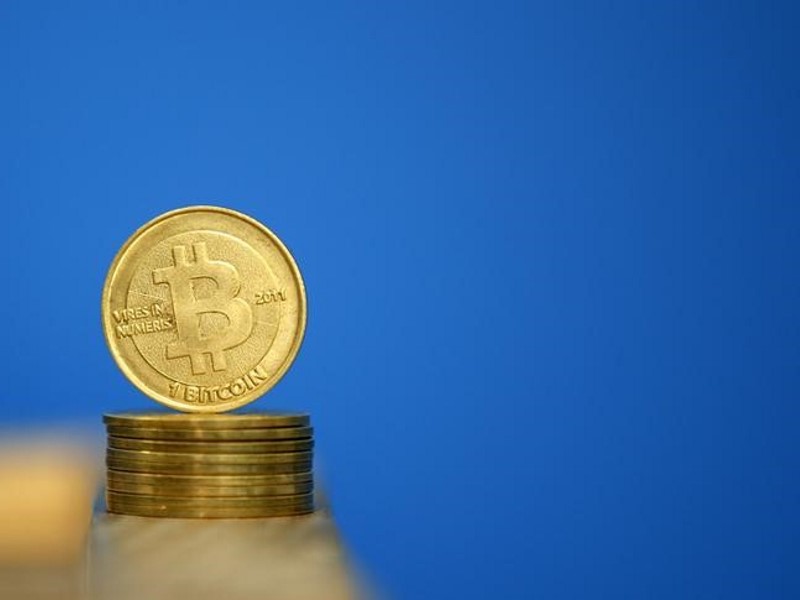- Home
- Internet
- Internet News
- Bitcoin Genesis: Wright Says Sorry, Won't Provide Fresh Proof He Created Bitcoin
Bitcoin Genesis: Wright Says Sorry, Won't Provide Fresh Proof He Created Bitcoin

Australian Craig Wright on Thursday went back on a promise to provide further proof that he created Bitcoin because he was "not strong enough" for the public scrutiny, raising fresh doubts over his claim.
The secretive businessman on Monday identified himself as the creator of the pioneering digital currency after years of speculation about who invented it.
The move stunned the world of virtual currencies, although some experts were not convinced, and Wright promised to provide further "extraordinary proof".
Bitcoin is a technically sophisticated currency based on the same underlying mathematics as governments and militaries use to encrypt codes.
Unlike traditional currencies such as the dollar or the euro, which require the sponsorship of a central bank, Bitcoin is decentralised.
"I believed that I could do this. I believed that I could put the years of anonymity and hiding behind me," read a statement posted on his website.
"But, as the events of this week unfolded and I prepared to publish the proof of access to the earliest keys, I broke. I do not have the courage."
The Outside Organisation, a public relations firm that has worked with Wright, said the statement was "legitimate" but declined to comment further.
Wright had made his claim through three media outlets - the BBC, The Economist and GQ magazine - and also wrote a blog.
The BBC said Wright had presented some proof that only the true creator of Bitcoin could have provided.
It posted a video of him demonstrating the signing of a message with the public key associated with the first transaction ever done on Bitcoin following its 2009 launch.
These keys had to be created by Satoshi Nakamoto, the pseudonym used at the time by the currency's creator, the British broadcaster said.
But The Economist was more sceptical, saying there were still a number of steps to go through in order to verify the claim and "important questions remain".
Digital coins are created by supercomputers and then traded online or exchanged for goods and services by a peer-to-peer network of computers connected to the Internet.
Despite some early notoriety over its use by drug dealers on the dark web, the system has grown beyond its radical libertarian roots and is being taken increasingly seriously by the financial establishment.
Billions of dollars worth of Bitcoins are now in circulation.
'I'm Sorry... And goodbye'
The BBC's technology correspondent, Rory Cellan-Jones, said Wright's refusal to provide more proof was "bound to raise fresh doubts" about his claim.
Cellan-Jones said that Wright in the last 24 hours had "initiated an experiment designed to show that he does possess Satoshi's cryptographic keys, then done an about-turn".
"I have always stressed that it was his endorsement by Jon Matonis and Gavin Andresen from the Bitcoin Foundation that we found compelling," the journalist wrote.
"But now they - and I - have been involved in this failed experiment, which is bound to raise fresh doubts."
In his statement on Thursday, Wright mentioned both Matonis and Andresen, saying he hoped their credibility would not be "irreparably tainted".
"They were not deceived, but I know that the world will never believe that now," he said.
Wright said his "qualifications and character were attacked" and he was "not strong enough".
"I know that this weakness will cause great damage to those that have supported me," he said.
"I'm Sorry" read the title of Wright's statement, which ended with the words: "And goodbye".
For the latest tech news and reviews, follow Gadgets 360 on X, Facebook, WhatsApp, Threads and Google News. For the latest videos on gadgets and tech, subscribe to our YouTube channel. If you want to know everything about top influencers, follow our in-house Who'sThat360 on Instagram and YouTube.
Related Stories
- Samsung Galaxy Unpacked 2025
- ChatGPT
- Redmi Note 14 Pro+
- iPhone 16
- Apple Vision Pro
- Oneplus 12
- OnePlus Nord CE 3 Lite 5G
- iPhone 13
- Xiaomi 14 Pro
- Oppo Find N3
- Tecno Spark Go (2023)
- Realme V30
- Best Phones Under 25000
- Samsung Galaxy S24 Series
- Cryptocurrency
- iQoo 12
- Samsung Galaxy S24 Ultra
- Giottus
- Samsung Galaxy Z Flip 5
- Apple 'Scary Fast'
- Housefull 5
- GoPro Hero 12 Black Review
- Invincible Season 2
- JioGlass
- HD Ready TV
- Laptop Under 50000
- Smartwatch Under 10000
- Latest Mobile Phones
- Compare Phones
- Itel A90
- Nubia Z70S Ultra
- Meizu Note 16
- Meizu Note 16 Pro
- Sony Xperia 1 VII
- OnePlus 13s
- Samsung Galaxy S25 Edge
- Vivo Y300 GT
- Lenovo Legion 9i (18”, 10)
- Alienware 16X Aurora
- OnePlus Pad 2 Pro
- Amazon Kindle Paperwhite (12th Gen)
- boAt Storm Infinity Plus
- Moto Watch Fit
- Xiaomi QLED TV FX Pro (55-inch)
- Xiaomi QLED TV FX Pro
- Asus ROG Ally
- Nintendo Switch Lite
- Toshiba 1.8 Ton 5 Star Inverter Split AC (RAS-24TKCV5G-INZ / RAS-24TACV5G-INZ)
- Toshiba 1.5 Ton 5 Star Inverter Split AC (RAS-18PKCV2G-IN / RAS-18PACV2G-IN)

















